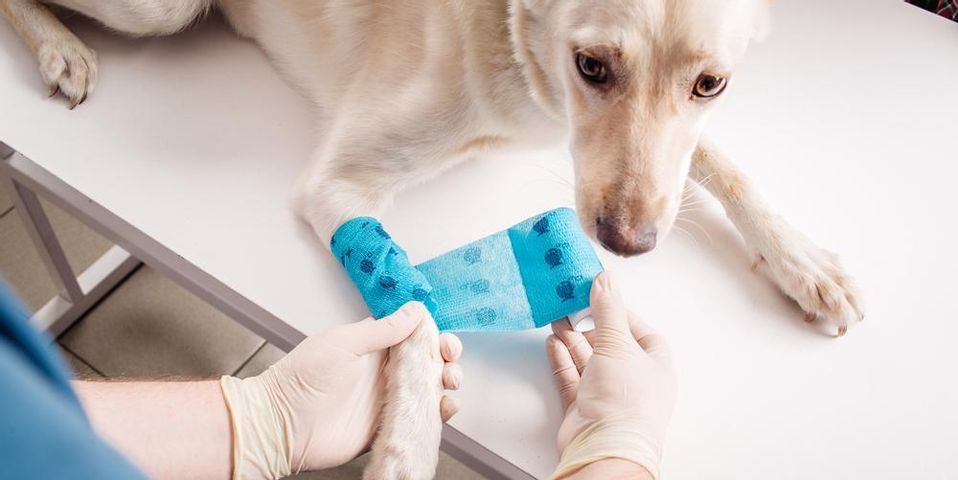
If your dog gets into a fight with another animal, stop the situation as quickly as possible and take your dog to a nearby pet hospital. Without putting yourself in danger, break up the fight by throwing water on the animals, making a loud noise to frighten the attacker away, or positioning a barrier between the dogs. Call the clinic while you’re on the way so they know what to expect before you arrive.
5 Steps a Pet Hospital Can Take to Treat Your Dog After a Fight
1. Administer Pain Medication
The first thing a veterinarian will do is give your dog pain medication to make them more comfortable. Depending on the dog’s state, they might also administer a mild sedative or apply a muzzle to help them calm down. Dogs often become aggressive when they’re afraid or in pain, and the veterinarian might take precautions to avoid a dangerous situation.
2. Conduct a Physical Examination
Next, a veterinarian will feel your dog’s body with their hands to check for possible broken bones or tenderness. Throughout the appointment, they’ll also observe your dog for signs of discomfort, such as whimpering, limping, lethargy, or visible swelling.
3. Treat for Infection
 It’s easy to get an infection from a dog bite—over 60 types of bacteria can be found in a dog’s mouth. To check for open wounds, the veterinarian may shave their fur. If there are any scratches or punctures, the vet will flush the wounds with saline and apply a topical antibacterial solution.
It’s easy to get an infection from a dog bite—over 60 types of bacteria can be found in a dog’s mouth. To check for open wounds, the veterinarian may shave their fur. If there are any scratches or punctures, the vet will flush the wounds with saline and apply a topical antibacterial solution.
If they need sutures, the vet will close the wounds and place an Elizabethan collar—also known as the “cone of shame”—around your dog’s neck to keep them from licking and infecting their injuries. They might also prescribe oral antibiotics and recommend an antibacterial rinse to keep the area clean.
4. Check for Internal Injuries
Your dog may have internal injuries, even if there aren’t any visible wounds. If your dog was bitten near the esophagus or torso, the veterinarian may use an ultrasound device to see if the esophagus is damaged, or if the abdominal cavity is perforated. If there are signs of internal bleeding or broken bones, the veterinarian will discuss surgery options with you.
5. Review Rabies Vaccination History
Finally, the veterinarian will review your dog’s chart for their most recent rabies shots. Depending on their status, the veterinarian might recommend a rabies booster.
If your dog has been involved in an altercation with another animal, take them to a pet hospital, even if their injuries seem minor. It’s easy to miss signs of internal injury, and open wounds are often overlooked in areas with lots of fur. Contact Alexandria Pike Animal Hospital in Southgate, KY, for quick, caring service. Dr. Doan is a compassionate veterinarian with experience in ACL repair, wound care, and soft tissue surgery. To make an appointment with the pet hospital, call (859) 781-1800. To learn more about their services, visit the clinic’s website.
About the Business
Have a question? Ask the experts!
Send your question

